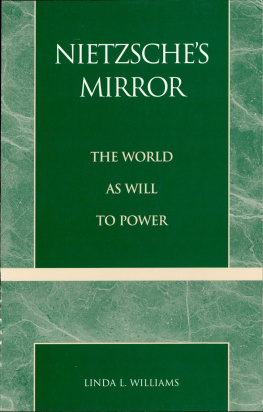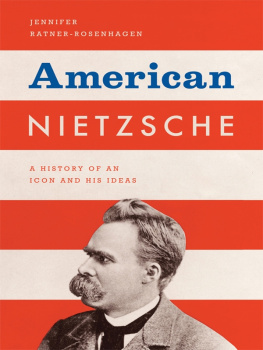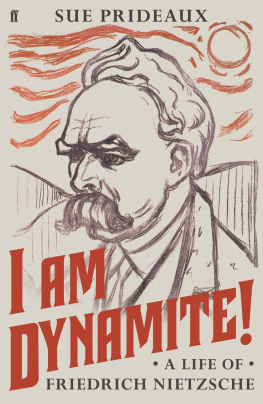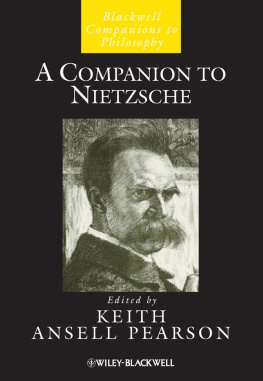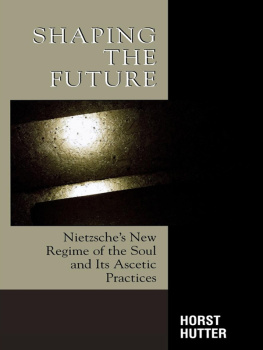Nietzsche Friedrich Wilhelm - Nietzsches mirror: the world as will to power
Here you can read online Nietzsche Friedrich Wilhelm - Nietzsches mirror: the world as will to power full text of the book (entire story) in english for free. Download pdf and epub, get meaning, cover and reviews about this ebook. City: Lanham;Maryland;Oxfordshire;England, year: 2001;2013, publisher: Rowman & Littlefield Publishers, genre: Romance novel. Description of the work, (preface) as well as reviews are available. Best literature library LitArk.com created for fans of good reading and offers a wide selection of genres:
Romance novel
Science fiction
Adventure
Detective
Science
History
Home and family
Prose
Art
Politics
Computer
Non-fiction
Religion
Business
Children
Humor
Choose a favorite category and find really read worthwhile books. Enjoy immersion in the world of imagination, feel the emotions of the characters or learn something new for yourself, make an fascinating discovery.
- Book:Nietzsches mirror: the world as will to power
- Author:
- Publisher:Rowman & Littlefield Publishers
- Genre:
- Year:2001;2013
- City:Lanham;Maryland;Oxfordshire;England
- Rating:4 / 5
- Favourites:Add to favourites
- Your mark:
- 80
- 1
- 2
- 3
- 4
- 5
Nietzsches mirror: the world as will to power: summary, description and annotation
We offer to read an annotation, description, summary or preface (depends on what the author of the book "Nietzsches mirror: the world as will to power" wrote himself). If you haven't found the necessary information about the book — write in the comments, we will try to find it.
Nietzsche Friedrich Wilhelm: author's other books
Who wrote Nietzsches mirror: the world as will to power? Find out the surname, the name of the author of the book and a list of all author's works by series.
Nietzsches mirror: the world as will to power — read online for free the complete book (whole text) full work
Below is the text of the book, divided by pages. System saving the place of the last page read, allows you to conveniently read the book "Nietzsches mirror: the world as will to power" online for free, without having to search again every time where you left off. Put a bookmark, and you can go to the page where you finished reading at any time.
Font size:
Interval:
Bookmark:
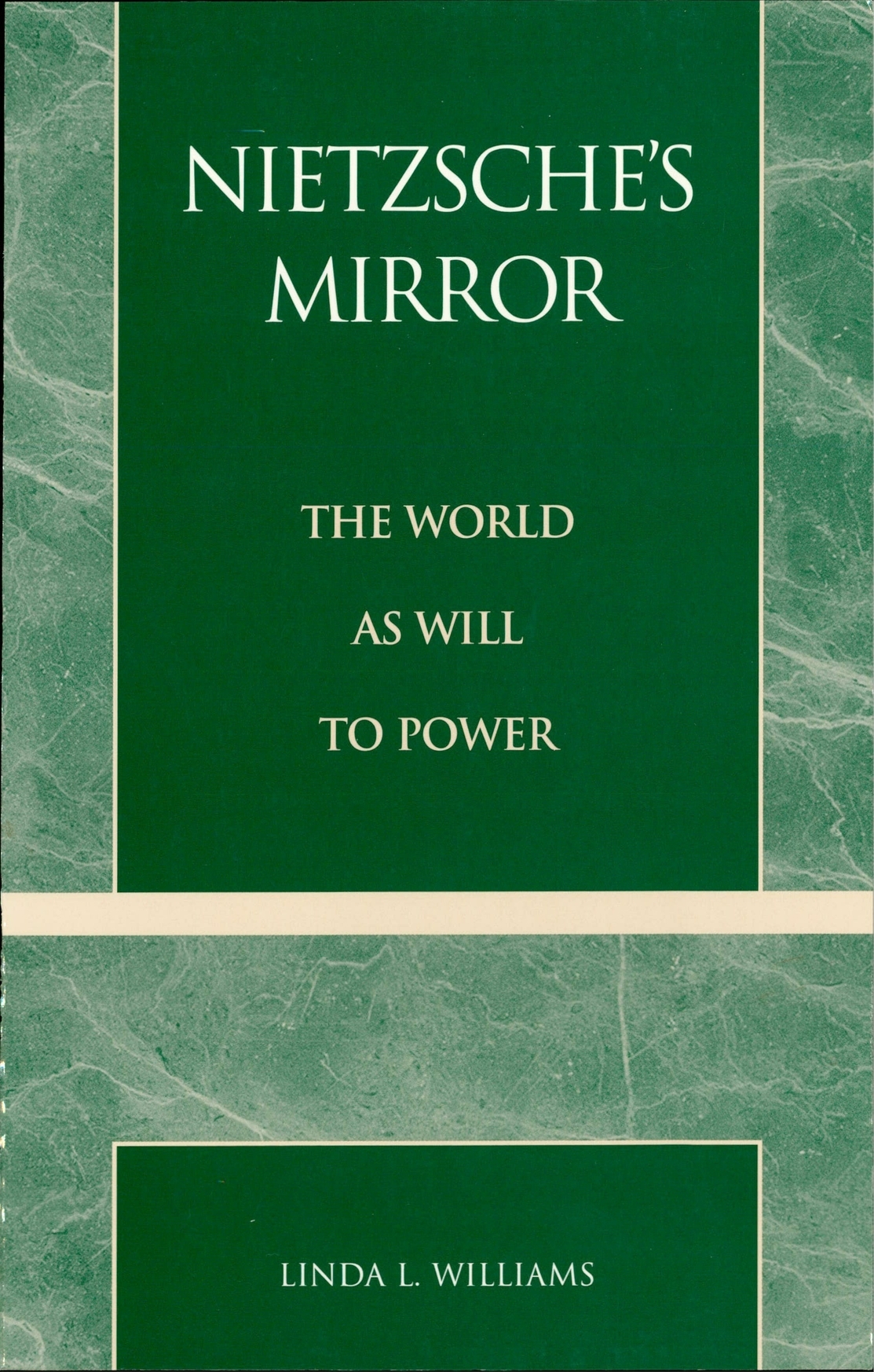
I wish to thank, first of all, John Arras and Bernd Magnus, who encouraged me to love philosophy in general and Friedrich Nietzsche in particular. Special thanks go to Richard Schacht and his 1989 National Endowment for the Humanities seminar on Nietzsche and to all the Nietzsche campers involved in that seminar. In addition, I would like to thank my colleagues at Kent State University, who have listened to my ideas on Nietzsche with great patience, good humor, and helpful advice, particularly Dan Silber, whose insightful comments on chapter 4 were greatly appreciated. The Kent State University Research Council generously provided funds for the completion of this project.
Further thanks are due to all the editors at Rowman and Littlefield, who have been so helpful and patient with my questions. Finally, I wish to let my family know how much their love and support have meant to me and have sustained me throughout my research and writing of this book, and a big hug goes to Mike Halliday-Williams, who helped proofread the German and organize the notes.
The following publishers have granted permission for their material to be reprinted in this book:
- Selections from the Kritische Gesamtausgabe Werke by Friedrich Nietzsche, ed. Giorgio Colli and Mazzino Montinari. Copyright 196771 by Walter de Gruyter and Co. Reprinted by permission of Walter de Gruyter and Co.
- Selections from The Portable Nietzsche, ed. Walter Kaufmann, trans. Walter Kaufmann. Translation copyright 1954 by Viking Press, renewed 1982 by Viking Penguin Inc. Reprinted by permission of Viking Penguin, a division of Penguin Putnam, Inc.
- Selections from Daybreak and Human, All-Too-Human by Friedrich Nietzsche, trans. R. J. Hollingdale. Copyright 1982 and 1986 by Cambridge University Press. Reprinted by permission of Cambridge University Press.
- Selections from The Basic Writings of Nietzsche by Friedrich Nietzsche, trans. Walter Kaufmann. Copyright 1967 by Walter Kaufmann. Reprinted by permission of Random House, Inc.
- Selections from The Gay Science by Friedrich Nietzsche, trans. Walter Kaufmann. Copyright 1974 by Random House, Inc. Reprinted by permission of Random House, Inc.
- Selections from The Basic Writings of Nietzsche by Friedrich Nietzsche, trans. Walter Kaufmann. Copyright 1966 by Walter Kaufmann. Reprinted by permission of Random House, Inc.
- Selections from The Will to Power by Friedrich Nietzsche, trans. Walter Kaufmann and R. J. Hollingdale. Copyright 1967 by Walter Kaufmann. Reprinted by permission of Random House, Inc.
Linda L. Williams is associate professor in the Department of Philosophy at Kent State University. She is the author of numerous articles, including On Making Nietzsche Consistent, The Development of Will to Power in Nietzsches Published Works and the Nachlass, What Makes Zarathustra Sick? and A Feminist Interview with Friedrich Nietzsche. Her areas of specialization are ethics and nineteenth to mid-twentieth century continental philosophy, and she is a member of the North American Nietzsche Society.
What is will to power? We began this investigation with this question, and I hope I have demonstrated why this simple question is so difficult to answer simply. One of the most prominent reasons why there are different answers to this question is that it depends mightily on whether one decides to treat the notes from the Nachlass as equivalent to those from the writings Nietzsche published or authorized for publication before his illness struck. As I hoped to show in chapter 3, the Nachlass notes that contain the phrase will to power are quite different from those aphorisms in the published works. Commentaries on Nietzsches writings also vary in their analyses of will to power according to whether the commentator considers the Nachlass notes. Interpretations that have will to power as Nietzsches metaphysical principle rely almost exclusively on the Nachlass notes as their textual support.
Although interpretations of will to power either as a cosmological or an ontological principle fare better, they too heavily imply objective, nonperspectival standpoints, not just otherworldly ones. Interpreting will to power as Nietzsches empirical principle to which all experience can be reduced or interpreting will to power as Nietzsches science have the benefit of being in this world, but in my view they suffer from the implication that will to power somehow transcends Nietzsches perspectivism.
I have proposed that will to power is his lens through which he interprets the worldhis shorthand way of suggesting that experience be viewed as differing struggles for superiority among humans and other things, especially among humans and other humans. Thus, human physiology and psychology can be seen as the interaction of power relations. According to a will to power interpretation of experience (as opposed to a Christian or a mechanistic/scientific interpretation), human interaction, whether it be with other humans or with things, whether it be physically or psychologically, is interpreted as a struggle between competing forces for superiority. Ways of interpreting the worldand particularly human relationsalso increase or decrease power. Ultimately, Nietzsche suggests that the fullest expression of power can be attained through interpreting the world as will to power. Will to power, then, is a consciously created slant on the world that, according to Nietzsche, allows certain humans to flourish better than the mythic worldviews of Christianity or science.
But more importantly, viewing will to power as a consciously chosen perspective from which to interpret the world eliminates any need to argue about whether will to power is metaphysical, cosmological, or ontological. My reading of Nietzsches views has Nietzsche unconcerned with this kind of debate. As I read Nietzsche, the primary question becomes, What are the consequences of holding certain worldviews? The consequences of holding an otherworldly view (e.g., Christianity) are the perpetuation of mediocrity and humans who are guilty, sinful, shameful, and resentful. The consequences of holding a scientific view are humans who are stripped of their passions and reduced to mere causally determined entities. Nietzsche sees the consequences of holding a will to power view constitute the grounds for the possibility of great beings who are passionate, self-controlled, and creative. Their creativity is boundless in the sense that it can be in the arts, in spiritual matters, or in science.
But after all the negative attacks on Christian and scientific worldviews and the values they engender, what about Nietzsches vision of the consequences of holding a will to power worldview? Unfortunately, because the creation of individual values and realities is the very foundation of his vision, he cannot offer anything close to a blueprint for the betterment of humanity. That would be wholly contradictory to his vision. Great individuals must find their own ways. I am not convinced that Nietzsche would claim that will to power is the best worldview for all humans to have. I think he thinks it is better than Christianity and science, but in the works he authorized for publication, Nietzsche often offers will to power as an alternative rather than the alternative to them. When he champions a multiperspectival view in Beyond Good and Evil, Nietzsche must allow for other perspectives to be consistent. Again, the biggest difficulty Nietzsche has with science is it becoming too dominant a perspective to the point at which it forgets it is a perspective and starts considering itself as aperspectival, objective Truth. Nietzsches stance, as I read him, is not to eliminate the scientific perspective but, rather, to remind it that it is perspectival. In order to do this, Nietzsche attempts to explain the same phenomena science claims to explain and offer another explanation of it. Will to power serves as that alternative explanation.
Font size:
Interval:
Bookmark:
Similar books «Nietzsches mirror: the world as will to power»
Look at similar books to Nietzsches mirror: the world as will to power. We have selected literature similar in name and meaning in the hope of providing readers with more options to find new, interesting, not yet read works.
Discussion, reviews of the book Nietzsches mirror: the world as will to power and just readers' own opinions. Leave your comments, write what you think about the work, its meaning or the main characters. Specify what exactly you liked and what you didn't like, and why you think so.

